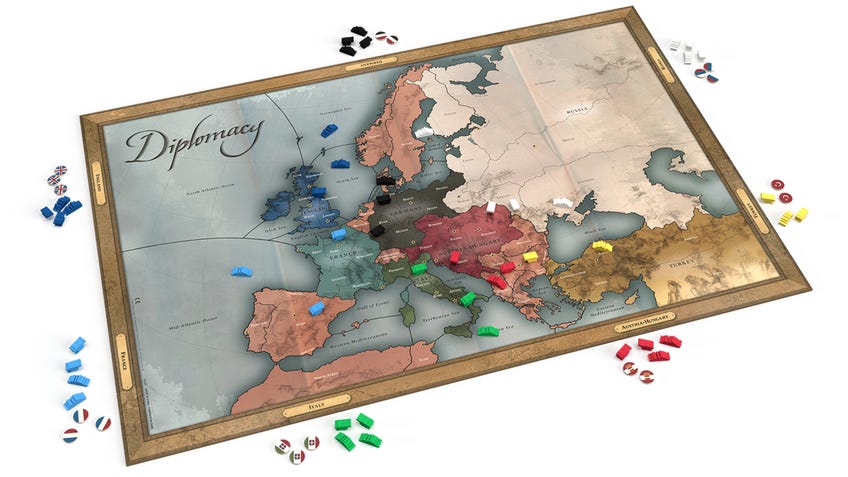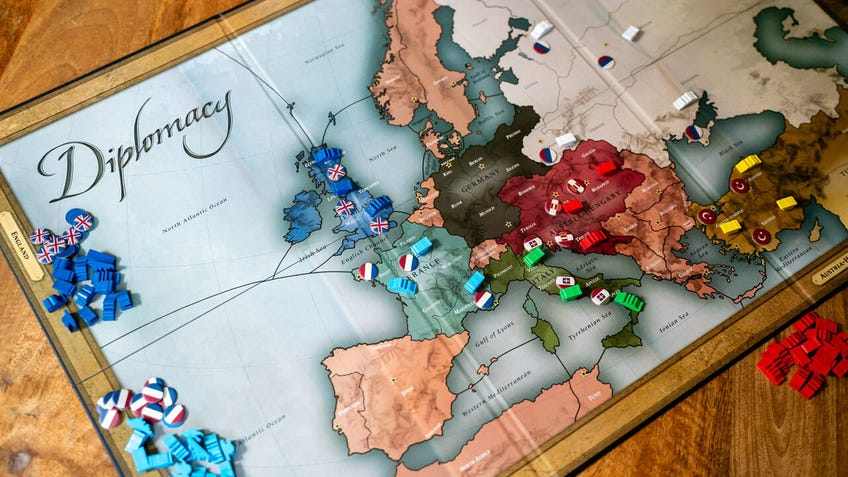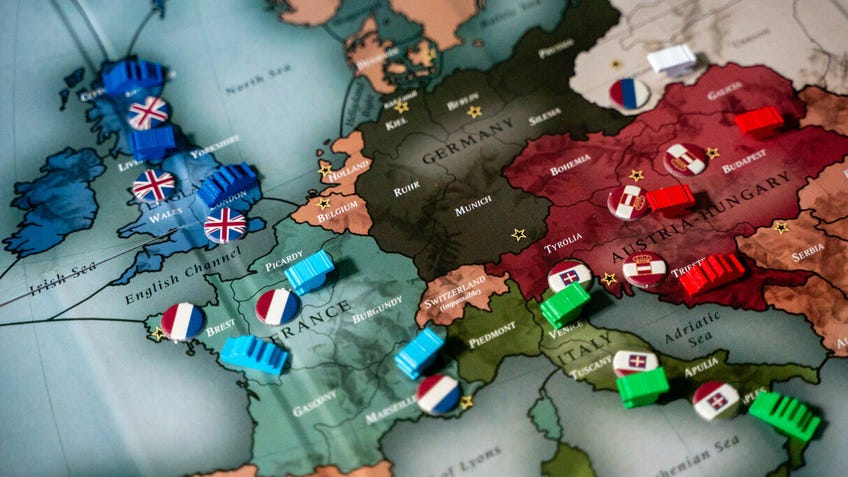The 1950s wargame that still ruins friendships
70 years on, Diplomacy shows just how simple an excellent negotiation game can be.
As long as I’ve been playing games, I’ve been in love with negotiation. I've always had a philosophy: why use the framework of the game to win when you can trick the other players into losing? Board games where clever negotiation and manipulation are rewarded, like Twilight Imperium, Archipelago and A Game of Thrones, have always been the bread and butter of my table.
Over the years, many games have expanded on this basic idea of semi-cooperative, team-based gameplay, tacking on not just new mechanics and fancy combat systems, but exploring a litany of themes. The core mechanics of negotiation, mutual benefit and fragile alliances have taken us from the busy ports of Genoa to the distant stars of Cosmic Encounter.
But about a year ago, I found myself with a question: what is the root of all these games? What game created these core mechanics and inspired the wave of negotiation games on shelves today? Turns out, that’s a pretty easy question to answer. It’s called Diplomacy, and it turns 70 years old in 2024.
Diplomacy is an extremely simple game. You and six of your friends control a great power of Europe at the dawn of the 20th century. You are competing for supply centers, key provinces that are dotted around the map. Each round, all players move all their units at the exact same time.
You can move your armies and navies and use them to force other nations out of areas by supporting each other - two units can work together to force a single defending unit out of a province. Critically, two powers can agree to cooperate in supporting each other, but this requires mutual trust that both sides will follow through.
A simple, easy-to-learn game where the experience of negotiations and cooperation is mostly unfiltered is kind of radical.
The more supply centers you control, the more armies and fleets you get to build. The first player to control 18 supply centers wins the game.
Save for a couple of extra movement rules, that’s it. That is the entire game. There are no resource tiles, no action cards, no special abilities. The real challenge in Diplomacy, therefore, is about working with and against your friends. Treaties, alliances and pacts will form as naturally as anything. But the absolute joy of this game comes about when the first person realises that their alliances are just words; when the betrayal starts.
This idea - a simple, easy-to-learn game where the experience of negotiations and cooperation is mostly unfiltered - is kind of radical in the current game space. Aside from a few notorious rules-lite board games like Chinatown, there still really isn’t anything quite like it.

I think this gets at something very primitive about us. Not just us as gamers, but as people. We love gossip and drama. Diplomacy offers a tantalisingly slim ruleset that structures and gamifies gossip and drama.
There’s a certain excitement in knowing something that someone else doesn’t. Being in a secret alliance; plotting a sudden, coordinated strike; or even just knowing that someone is about to betray someone else in a move that doesn’t really affect you. There’s a richness and a theatre to that kind of negotiation that is extremely human.
If everyone going in understands that it’s all in good fun, Diplomacy offers some of the best social interaction in modern table gaming.
The world of game design, especially that of strategic negotiation games, increasingly rewards packing in more content. More rules, more factions, more glossy cards and hand-painted miniatures. I think that’s fantastic - each game is someone’s idea, someone’s vision, and I’m always excited to dive into a new one.
But the last year of playing Diplomacy has made something very clear to me. I don’t need a ton of features and rules to act as an abstraction for interpersonal negotiation. My friends, on their own, are excellent content.

If you get a chance to play it, Diplomacy is a fantastic game that, in the 21st century, perhaps doesn’t get its due credit. I fully recommend using an online interface to play with a group of friends, where each in-game turn is one full day. It only takes about 15 minutes or so, and it’s an incredibly social affair. You always have something to talk about with your friends around the water cooler or over Discord. Yes, some of your discussions will be emotionally charged (the game certainly has a reputation of being a friendship-ruiner), but if everyone going in understands that it’s all in good fun, Diplomacy offers some of the best social interaction in modern table gaming.
Sometimes, I am perfectly satisfied to play an incredibly simple game where the challenge lies in playing the other people around your table. Really, I play board games first and foremost to enjoy the company of my friends. While there is loads of fun to be had in diving into a sea of components and textbooks of manuals, on occasion there’s undeniable value in taking away that interface of plastic and cardstock, and just playing a game where your friends are the pieces.

